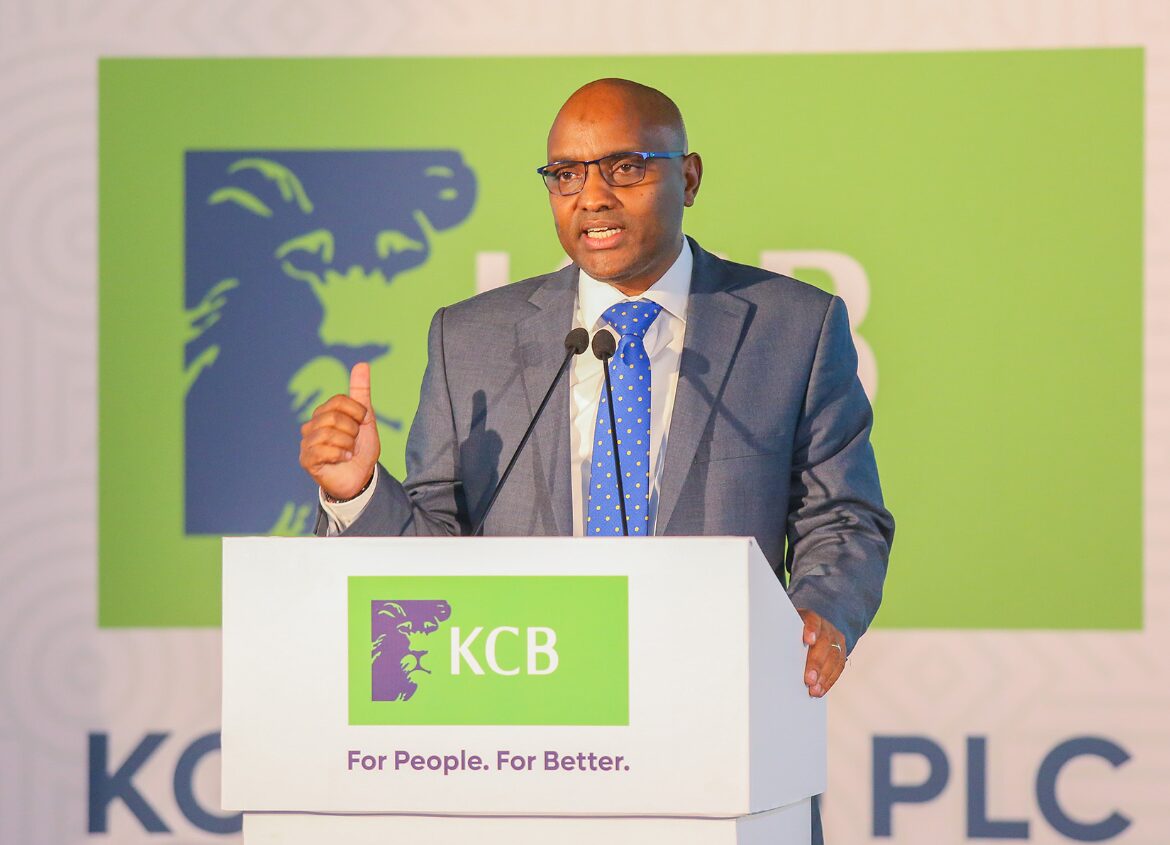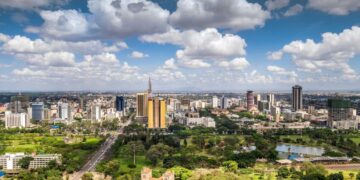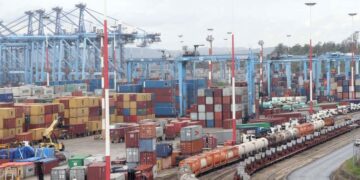Kenya Commercial Bank (KCB) has reported impressive financial results for the year, posting a 49% increase in profit after tax, amounting to Ksh 45.8 billion for the first nine months of 2024.

This represents a leap from the Ksh 30.7 billion posted during the same period last year, driven by sustained revenue growth across its operations.
A major highlight in KCB’s strategy this year is its commitment to sustainable financing, with the bank disbursing a record Ksh 34.7 billion in green loans aimed at promoting climate-friendly projects and businesses.
“The operating environment has been tough across all our markets, but we have continued to walk the journey with our customers while ensuring our key fundamentals remain strong. We are optimistic of a strong end of the year, riding on improving market conditions, solutions for customers and tapping the great strength of our people,” said Paul Russo, chief executive at KCB Group.
The bank’s performance continues to reflect the ongoing benefits of its diversification, both regionally and within various sectors.
The green loan initiative, a key component of KCB’s sustainability agenda, aligns with the bank’s broader environmental, social, and governance (ESG) goals, as it contributes to supporting climate action plans while stimulating economic growth in line with global sustainability standards.
Building on its impressive performance, KCB has expanded its reach across East Africa, with subsidiaries in Uganda, Tanzania, Rwanda, and the Democratic Republic of Congo (DRC).
These regions now contribute 36.6% to the group’s profit and 34% of total assets. The regional diversification has opened up new avenues for revenue, reinforcing KCB’s dominant position in the region.
“We have made deliberate investments to support regional trade and connect millions of people across the world to opportunities on the African continent and beyond whilst making a positive social impact in the communities,” Russo added.
The bank has also benefited from robust income growth.
Total revenue for the year surged by 22% to Ksh 142.9 billion, driven by strong performances in both foreign exchange income and transaction fees.
Contributions from its regional subsidiaries, including Trust Merchant Bank in the DRC, have bolstered KCB’s financial results.
Lending has remained a strong pillar of KCB’s strategy, with the total loan book now reaching Ksh 1.1 trillion. Retail lending, particularly mortgages and small business financing, has been the primary engine of growth.
Net interest income grew by 24%, reflecting KCB’s ability to balance loan expansion with effective interest management.
The bank has continued to demonstrate solid risk management, even as its non-performing loans (NPLs) reached Ksh 215.3 billion, pushing the NPL ratio to 18.5%.
In response, KCB has increased its provisions, a move aimed at managing the impact of any future loan defaults while maintaining a strong capital position.
KCB’s stature in the banking sector has been further solidified by its recognition as one of the top three most valuable brands in Kenya, according to the Brand Finance Global 500 ranking.
This achievement, coupled with its leading role in East Africa’s economic transformation, strengthens its reputation as a key player in the regional financial ecosystem.
Strategic partnerships have also played a crucial role in KCB’s continued growth.
The bank secured a €230 million (Ksh 32 billion) deal with the European Investment Bank to support SMEs, youth, and women-led businesses in East Africa.
KCB also secured a project preparation facility from the Green Climate Fund, which aims to support climate-positive technologies among MSMEs in Kenya.
These collaborations align with the bank’s broader strategy of supporting inclusive growth while advancing its commitment to environmental sustainability.
Kenyan Business Feed is the top Kenyan Business Blog. We share news from Kenya and across the region. To contact us with any alert, please email us to [email protected]



























































